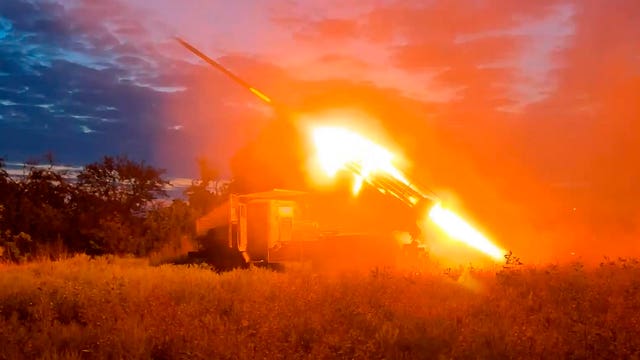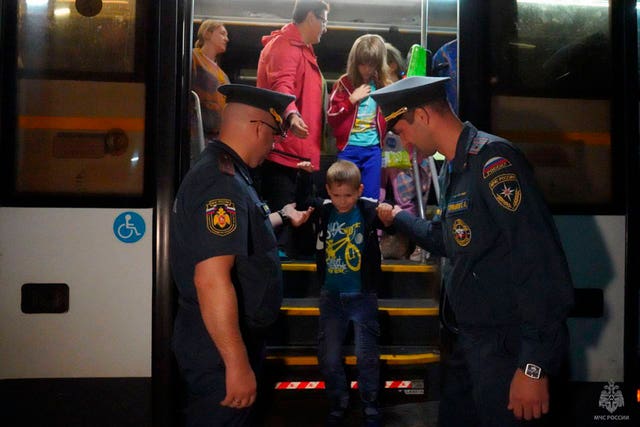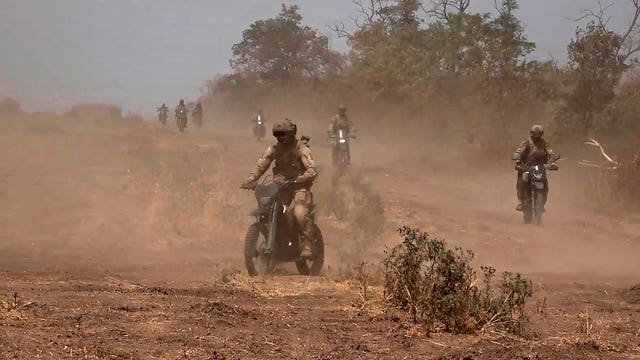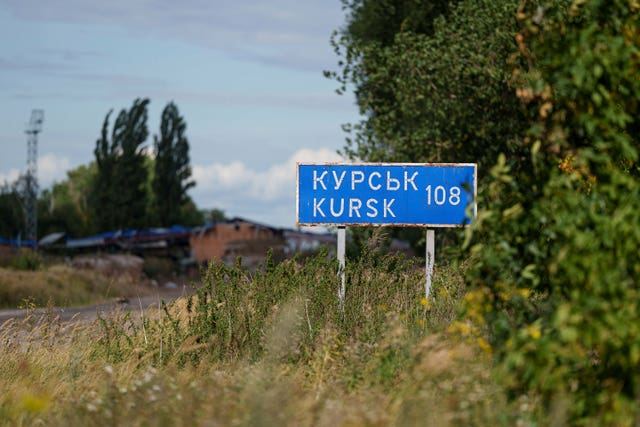Ukraine not interested in occupying Russian land after incursion, Kyiv says
It comes after Russia’s Defence Ministry claimed its forces have blocked an effort by Kyiv’s troops to move deeper into Russia.
The Russian Defence Ministry has said that its forces blocked an effort by Kyiv’s troops to expand a week-long incursion into Russia’s Kursk region, as a Ukrainian Foreign Ministry official said Kyiv has no intention of occupying Russian territory in the major operation.
Russian army units, fresh reserves, army aircraft, drone teams and artillery forces stopped Ukrainian armoured mobile groups from moving deeper into Russia, near the Kursk settlements of Obshchy Kolodez, Snagost, Kauchuk and Alexeyevsky, a Russian Defence Ministry statement said.
Meanwhile, Ukrainian Foreign Ministry spokesman Heorhii Tykhyi said the cross-border operation was aimed at protecting Ukrainian land from long-range strikes launched from Kursk.

He said that Russia had launched more than 2,000 strikes from the Kursk region in recent months using anti-aircraft missiles, barrel artillery, mortars, drones, 255 glide bombs and more than 100 missiles.
He said “the purpose of this operation is to preserve the lives of our children, to protect the territory of Ukraine from Russian strikes”.
The commander of the Ukrainian military, Oleksandr Syrskyi, said in a video posted to President Volodymyr Zelensky’s Telegram channel on Tuesday that Ukraine now controls 74 settlements in the Kursk region.
Ukrainian troops have continued to advance, gaining control of over 15 square miles of territory in the past 24 hours, commander Syrskyi said.
“Fights are ongoing along the entire front line. The situation, despite the high intensity of combat, is under control,” he added.
Ukraine’s Western partners have said the country has the right to defend itself, including by attacking across the border.
Polish Prime Minister Donald Tusk said on Tuesday that he backed the Ukrainian operation, though he added that Kyiv officials didn’t consult him about it beforehand.

The Kremlin’s forces are intensifying their attacks in eastern Ukraine.
Ukraine’s General Staff said on Tuesday that over the previous 24 hours, Russian troops launched 52 assaults in the area of Pokrovsk, a town in Ukraine’s Donetsk region that is close to the front line – roughly double the number of daily attacks there a week ago.
Ukraine’s undermanned army has been struggling to hold back the bigger and better-equipped Russian forces in Donetsk.
Ukraine’s charge onto Russian soil that began August 6 has already encompassed about 386 square miles of Russian territory, the Ukrainian military claims.
The goals of the swift advance into the Kursk region have been a closely-guarded military secret.

If so, the increased pressure around Pokrovsk suggests Moscow did not take the bait.
Ukraine’s ambitious operation — the largest attack on Russia since World War Two — has rattled the Kremlin.
It compelled Russian President Vladimir Putin to convene a meeting on Monday with his top defence officials.
Reportedly, Ukraine assembled thousands of troops — some Western analysts estimate up to 10,000-12,000 — on the border in recent weeks without Russia noticing or doing anything about it.
About 121,000 people have been evacuated from Kursk or have fled the areas affected by fighting on their own, Russian officials say.

Volunteers were pictured distributing bags of aid, while officials from the country’s Ministry of Emergency Situations helped people, including children and older people, off buses.
“There is no light, no connection, no water. There is nothing. It’s as if everyone has flown to another planet, and you are left alone. And the birds stopped singing,” an older man called Mikhail told Russian state television.
“Helicopters and planes fly over the yard and shells were flying. What could we do? We left everything behind.”
A motive behind Ukraine’s bold dive into Russia was to stir up unrest, according to Putin, but he said that effort would fail.





